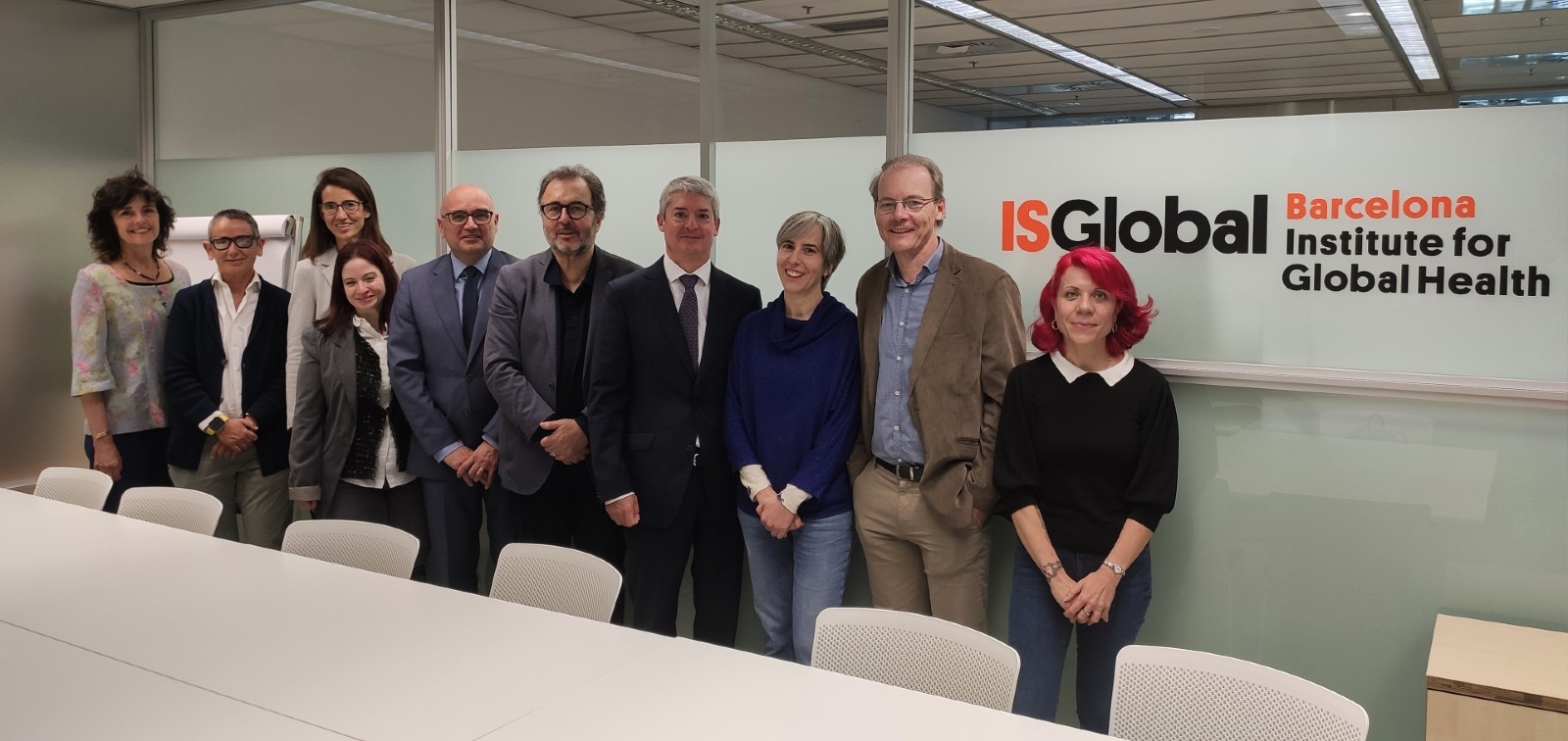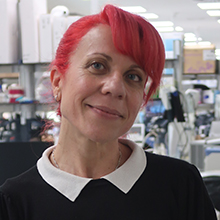ISGlobal and Agbar Continue Their Collaboration with a Second Project Evaluating the Spread of Antibiotic Resistance in Wastewater
The first joint project, which assesses exposure to nano- and microplastics through drinking water, is still ongoing
11.11.2022
The collaboration agreement signed last year between Agbar and the Barcelona Institute for Global Health (ISGlobal), an institution supported by "la Caixa" Foundation, continues to bear fruit. While the first joint project assessing the degree of human exposure to nano- and microplastics and plastic additives in water is still underway, the institutions have launched a second project to study the spread of bacteria and antibiotic resistance genes in the entire water cycle, within the metropolitan area of Barcelona.
The project was formally launched on Thursday 10 November at a ceremony attended by Manuel Cermerón, CEO of Agbar, and Antoni Plasència, Managing Director of ISGlobal.
Sara Soto, director of ISGlobal's Viral and Bacterial Infections Programme and coordinator of the project, explained that the aim is to analyse the presence of antibiotic-resistant bacteria, as well as resistance genes, in different water samples from two wastewater treatment plants in the province of Barcelona (Gavà-Viladecans and Baix Llobregat), with different water regeneration systems. Samples will also be collected at the inlet and outlet of the drinking water treatment plant in Sant Joan Despí (Barcelona).
"We hope to generate scientific evidence that will guide us on which water treatment to choose, depending on the load of antibiotic-resistant bacteria and antibiotic resistance genes that need to be eliminated," explains Sara Soto.
Manuel Cermerón, CEO of Agbar, stated that "the start of this new project demonstrates the success of the collaboration and alliance-building model that we promote at Agbar, in order to continue searching for disruptive solutions that improve people's lives. Together, and through the use of innovative technologies, we will be able to create safer and healthier environments for all citizens".
Assessment of the first year of collaboration
The signing of the project also served to evaluate the first year of collaboration between Agbar and ISGlobal. Both institutions agreed to promote scientific research and knowledge transfer projects by signing a framework document with an initial duration of two years. ISGlobal assigns research staff to the projects promoted jointly, in addition to Agbar's contribution to funding.
The first study under the agreement has been assessing human exposure to nano- and microplastics and plastic additives through drinking water for the last year. It aims to measure the levels of nano- and microplastics in faecal samples and the presence of plastic additives in urine before and after participants make a change in their drinking habits.
Cristina Villanueva, Associate Research Professor at ISGlobal and coordinator of this first project, explained that the fieldwork of the study has been carried out during the first year (the recruitment and collection of all biological and water samples). "The next step is to analyse the samples in the laboratory and performa a statistical analysis of the data. Agbar will analyse the drinking water samples and CSIC will analyse of the biological samples.
"We are very satisfied with the collaboration with Agbar", concludes Antoni Plasència, CEO of ISGlobal. "The good progress of the first joint project reaffirms our desire to continue joining forces and capacities, with the common goal of generating scientific knowledge that benefits society”.




